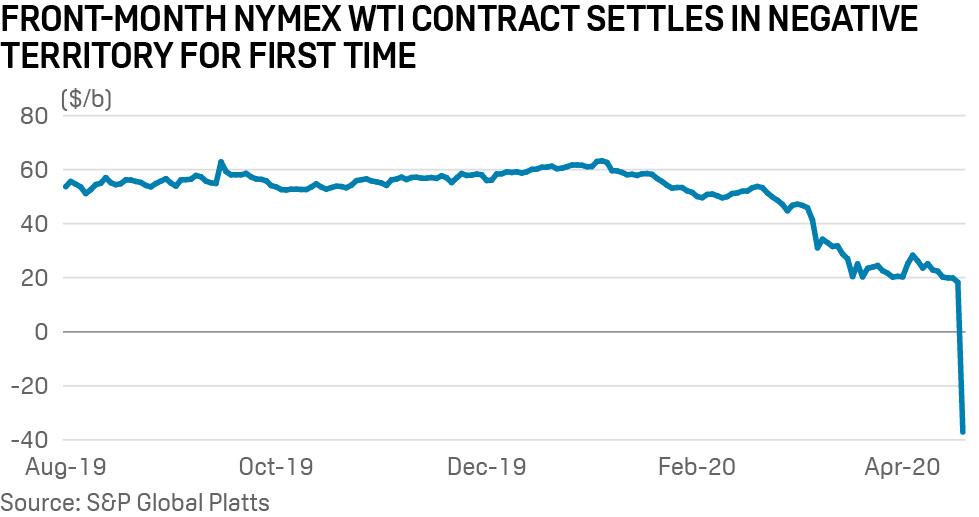
Besides his extensive derivative trading expertise, Adam is an expert in economics and behavioral finance. Adam received his master’s in economics from The New School for Social Research and his Ph.D. from the University of Wisconsin-Madison in sociology. He currently researches and teaches economic sociology and the social studies of finance at the Hebrew University in Jerusalem.
A theory of fiscal dominance in India – BusinessLine
A theory of fiscal dominance in India.
Posted: Sun, 02 Aug 2020 07:00:00 GMT [source]
This indicates that central banks may affect the amount of money in circulation and the demand for it in the economy by altering interest rates, conducting open market transactions and imposing reserve requirements. In the U.S., moral suasion is also known as “jawboning,” since it amounts to talk, in contrast to more forceful methods the Federal Reserve (Fed) and other policymakers have at their disposal. More specifically, attempts by central banks to influence the rate of inflation without resorting to open market operations are sometimes called “open mouth operations.” Monetary policy refers to the actions taken by a central bank or monetary authority to manage the supply of money and interest rates in an economy, with the aim of promoting economic growth and stability. To affect the price and accessibility of credit, this may entail altering the money supply, setting interest rates or utilizing other instruments.
Monopoly Demand Curve
In this capacity, the NBB chairs the senior policy and technical groups that facilitate the cooperative oversight, provides the secretariat and monitors the follow-up of any decisions taken. When there is a greater flow of credit to different business activities, investment is increased. In the case of deflation, margin requirements are deceased so that demand for loans is increased. In the case of inflation, the margin requirement is increased so that demand for loans is decreased. One of the most notorious examples of moral suasion techniques used is when the New York Federal Reserve intervened to bail out Long-Term Capital Management, an investment company that had lost billions of dollars.
Such threats will have credibility only if companies think that those threats will be carried out if they do not comply. It identifies issues relevant to Swift oversight through the analysis of 6 documents provided by Swift and through discussions with Swift management. The NBB maintains a close relationship with Swift, with regular ad-hoc meetings, and serves as the central banks’ entry point for the cooperative oversight of Swift. As a result, the central banks of the G-10 countries agreed that Swift should be subject to cooperative oversight by central banks. For example, in periods of expansionary monetary policy when the interest rates are at their lowest, the central bank does not have much room to achieve its goals due to the rock-bottom levels of the rate of interest.
When is Moral Suasion Used?
The term “moral suasion” refers to the usage of rhetorical appeals, implicit threats, and persuasion in order to get a person or a group of people to change their behavior. Thus, moral suasion relies on verbal techniques rather than the use of force or coercion to get people to act in a certain manner. However, the precise monetary policy of CBDCs would depend on their individual designs and the goals of the central banks issuing them. The monetary policies of some CBDCs may be more open-ended, whereas those of others may be more closely aligned with existing fiat currencies or cryptocurrencies. The developing nature of digital currencies and the requirement for central banks to adopt this new technology will likely ultimately impact the monetary policy of CBDCs.
- As a result, the central banks of the G-10 countries agreed that Swift should be subject to cooperative oversight by central banks.
- In recent years the Fed has made a concerted effort to engage more with the public, which could be seen as an effort to increase transparency—or to leverage its power of moral suasion.
- Also, the central bank can request or convince the commercial banks to not to advance additional credit to the public or finance the non-priority industrial sectors.
- Since the size of its balance sheet also increases due to expansionary policy, purchasing more government debt also becomes extremely difficult.
The direct controls exercised by the Central Bank to regulate money and credit are designed to achieve their intended purpose by imposing an effective restraint on the final output of commercialbanks. Another example where moral suasion is used is when the Central Banks attempt to influence the market rate of inflation instead of implementing specific measures or operations. LTCM was a highly successful hedge fund, generating a string of high-double-digit annual returns in the 1990s. It was highly leveraged, however, with around $30 of debt per dollar of capital at the end of 1997.
The money supply process in open economies with interdependent security markets: The case of imperfect substitutability
Qualitative measures do not regulate the total amount of credit generated through commercial banks. In a situation where a central bank finds itself unable to enact a certain policy measure or prefers not to take explicit action, it may resort to suasion. As fewness of economic agents to be persuaded is a necessary condition for moral suasion to be effective, that policy instrument is more adapted to countries with a higher concentration of suppliers, both in terms of number and of geography. In order to achieve their oversight objectives, the overseers need timely access to all information that they consider relevant.
Gain unlimited access to more than 250 productivity Templates, CFI’s full course catalog and accredited Certification Programs, hundreds of resources, expert reviews and support, the chance to work with real-world finance and research tools, and more. The Federal Reserve found itself unable to directly fund a bailout of the hedge fund, especially because using taxpayer dollars for the bailout would upset the general populace. They succeeded in creating the impression that the company was too big to fail, and in the end, around 14 banks bailed out the company for $3.6 billion. During the 2000 US presidential election, George W. Bush criticized outgoing President Bill Clinton for not attempting to lower oil prices by “jawboning OPEC” to increase supply. The term jawboning has also been used to refer to Herbert Hoover’s efforts to convince employers to keep wages high as prices fell during the Great Depression. Hoover was successful in obtaining such agreements, but they did little to alleviate unemployment.

In 2012 European Central Bank (ECB) president Mario Draghi said the bank would do “whatever it takes” to preserve the euro, which served to underpin the beleaguered currency and led to its subsequent rebound.
Access Check
As is generally the case for payment systems oversight, the main instrument for oversight of Swift is moral suasion. They may not be able to react to changes in market conditions rapidly because they are less flexible than centralized monetary policy. Additionally, deflationary pressure from the scarcity of various cryptocurrencies may prevent people from investing and spending money. When the central bank feels that commodity prices are rising in an economy the speculative activities of businessmen and trades of such goods, the central bank wants to discourage the flow of credit to such speculative activities. The moral suasion develops a more psychological effect as the central bank makes an appeal to the bank’s nationalism spirit.
- The central bank is provided with little to no room to enact policy measures to meet its inflation goals.
- In the case of deflation, margin requirements are deceased so that demand for loans is increased.
- Moral suasion (or jawboning) is a phrase used in economics to refer to the act of persuading others or a group of people to act a certain way through persuasion rather than force.
To achieve macroeconomic goals such as price stability, full employment and economic growth, central banks like the Federal Reserve in the United States set and implement monetary policy for fiat currencies. To affect the money supply and demand in the economy, central banks employ a variety of monetary policy measures, including changing interest rates, conducting open market transactions and imposing reserve requirements. To ensure economic stability, lessen the effects of economic shocks and promote sustainable economic growth, central banks carefully control the money supply and interest rates. However, depending on the unique circumstances and requirements of each economy, monetary policy’s exact goals and tactics may change. Since open market operations are not possible or direct monetary policy tools are not available, the central banks use moral suasion to convince people that it is in control and can support the economy in many ways.
Interaction with other policy instruments
This enabled the Central bank to allocate a significant amount of bank credit to vital sectors in the economy. So commercial banks benefitted from the improved management environment emanating from the system of corporate planning they were required to carry out under this scheme. There exists a cordial and harmonious relationship between the Central Bank and commercial banks. So an opportunity exists for the former to persuade the latter to adopt practices and policies that are conducive to the implementation of ongoing programs of the central bank and of the government. Moral suasion is a policy tool frequently used by the Central Bank to obtain commercial banks in line with its broader objectives.

The arrangement was last reviewed in 2012 when the Swift Oversight Forum was set up. Information sharing on Swift oversight activities was thereby expanded to a larger group of central banks. While Swift is neither a payment nor a settlement system, and is therefore not regulated as such by central banks or bank supervisors, it is subject to central bank oversight as a critical service provider.
Moral suasion
Furthermore, it makes it more challenging for governments to manipulate the money supply for purposes of politics or commerce. Qualitative measures in monetary policy play an important role in the development process of the country. Qualitative credit control measures include (1) Prescription of margin requirements (2) Consumer Credit regulations (3) Rationing credit (4) moral suasion meaning in banking Moral suasion (5) Direct Controls. Effectiveness of authority refers to the ease in which the intentions of the political executive can be transformed into legislative or regulatory action. That is important because the governments and agencies can use implied threats of price controls, additional regulation or taxation to induce certain behaviours from companies.
Accelerating Vaccinations – International Monetary Fund
Accelerating Vaccinations.
Posted: Wed, 20 Apr 2022 06:33:44 GMT [source]
Thus we can say that the moral suasion is a psychological phenomenon of controlling the credit in the economy. It is not subject to any law as it is purely informal and involves personal interaction between the central bank and the commercial banks. Centralisation of authority contributes to the effectiveness of moral suasion as a policy tool since it makes the government’s positions clearer and more consistent. Attempts by governments to influence the behaviour of companies and citizens can therefore be understood more clearly. Increased jawboning may have been seen as necessary, given the decreased ability of the Fed to cut interest rates—which were near zero from December 2008 to December 2015—or increase the size of its balance sheet much further.
While a low interest rate regime may allow for economic growth, it comes with a drawback. The central bank is provided with little to no room to enact policy measures to meet its inflation goals. Moral suasion is applied in addition to the quantitative and other selected methods, especially in the situations where these methods prove to be less effective. The central bank relies heavily on this method where there are a large number of commercial banks, with a view to accomplishing the objectives.
For example, the minutes of a central bank’s monetary policy review meeting may be framed in a way that signals such a fact. Anyone can, in principle, use moral suasion to try to convince another party to change their attitude or behavior, but in an economic context it generally refers to central bankers’ use of persuasive tactics in public or private. It is often simply called “suasion” and the motives behind it are not always altruistic, but have more to do with the pursuit of particular policies. Other central banks also have a legitimate interest in, or responsibility for, the oversight of Swift, given Swift’s role in their domestic systems.


Leave a reply